
You might not realise it, but vitamin B12 is a powerhouse for supporting your health. It does everything from helping your muscles repair to improving your mood and giving you energy to go about your day. It can even help your hair to grow, too. It really is a vital component for any healthy body – but many people don’t get enough of it.
According to experts, B12 deficiency is most likely to affect the elderly and those following a plant-based lifestyle. But you aren’t immune even outside of these brackets, as it can affect younger people who aren’t benefitting from a well-rounded diet.
To get the low down on B12, I spoke to nutritional therapist Alexa Mullane, who explained: “B12 is naturally found mainly in animal products like meat, fish, eggs and organ meats. Vegetarian sources of B12 include chlorella, nori, nutritional yeast and certain mushrooms, but many vegans and vegetarians have insufficient levels of B12 because it’s not widely found in plants.”
According to Mullane, not getting enough B12 can result in issues like anaemia, fatigue and more intense symptoms including shortness of breath, palpitations, pale skin, muscle weakness, numbness and tingling in hands or feet, blurred vision and memory loss. “Vitamin B12 is a water-soluble vitamin that is crucial for many functions in the body. It’s used to make DNA, it helps us to make energy and it’s vital for maintaining a healthy nervous system. We can’t make vitamin B12 ourselves so it’s essential that we get it from our diet,” she explains.
It’s a notoriously difficult nutrient to absorb in the gut. According to experts at Betteryou, “at most, only one per cent of our dietary intake will be absorbed by the body, and that relies on digestive efficiency and the presence of a chemical called intrinsic factor. Tiredness, stress, ill-health, poor or limited diet will all reduce this absorption further.”
For some, the easiest way to get B12 into your diet is through supplements. A daily supplement can help you reach your nutrient goals, particularly if you’re not eating a diet that’s rich in foods like meat, fish and eggs. For most people, these foods are part of an everyday diet and so B12 deficiency isn’t a concern, but for others with allergies, intolerances or lifestyles and beliefs that don’t allow a daily serving of these types of foods, a supplement can support healthy body and brain function.
If you struggle with anxiety and lack of sleep, furthermore, other supplements like CBD oil could be the solution. Of course, not all supplements are created equal, some are more bioavailable than others and some offer different doses of essential nutrients in varying levels of quality and purity. So we turned to Alexa Mullane for her suggestions on the best B12 supplements to buy and how to take them. Read on for her expert recommendations.
Wild Nutrition food-grown B12 plus
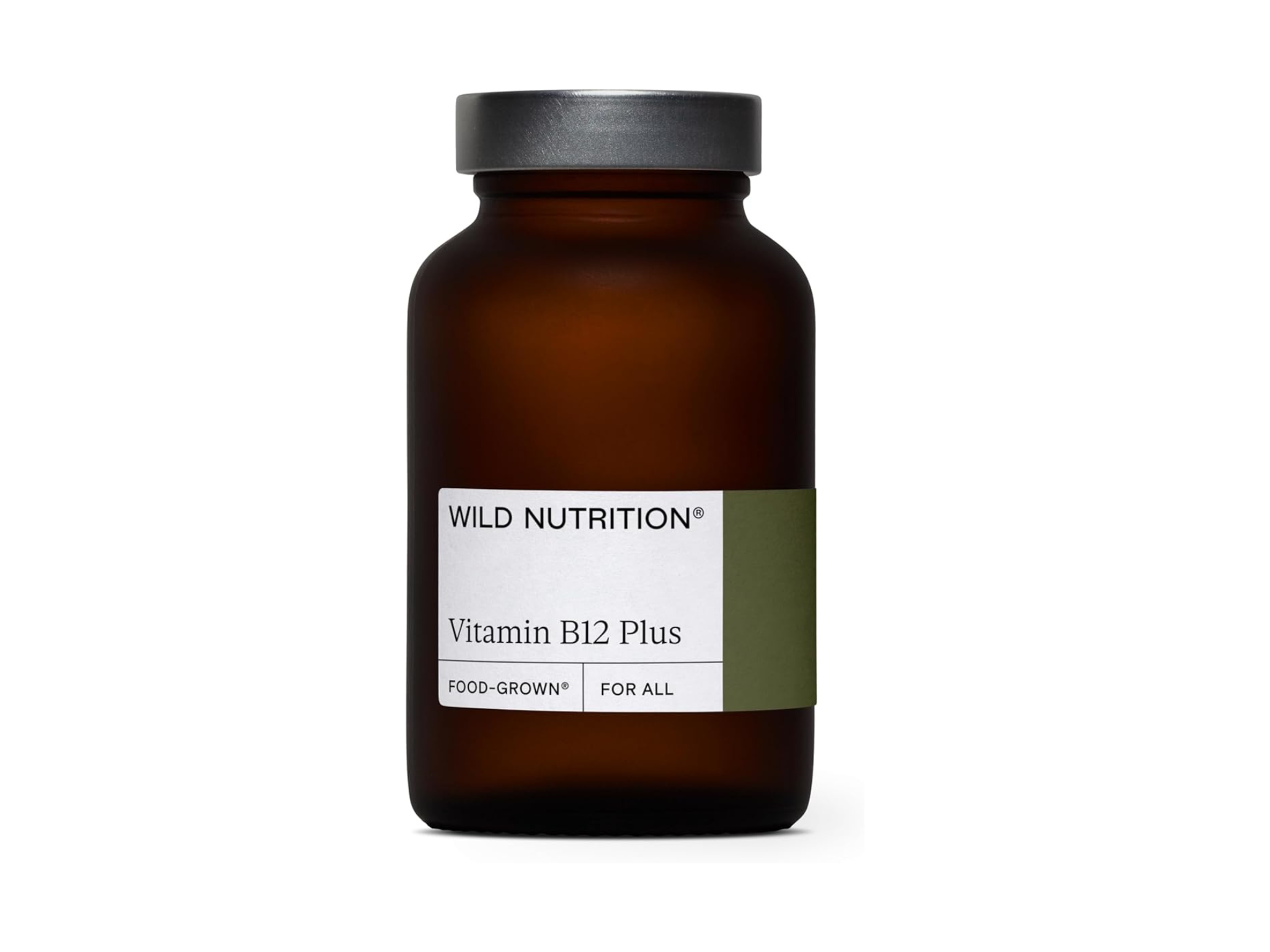
Volume: 30 capsules
How to take it: Take one capsule per day
Strength: 500μg per capsule
Created by nutritional therapist Henrietta Norton, Wild Nutrition’s supplements are known for their quality and bioavailability. The brand is also a favourite of our own Fitness and wellbeing editor.
Mullane says, “I love this product because it’s a naturally food-grown nutrient that is easy to digest and absorb, with no fillers, binders or preservatives.”
Each bottle contains 30 capsules containing nutrient-enhanced yeast and beetroot powder for a natural dose of vitamin B12.
Buy now £14.4, Wildnutrition.com
Betteryou Boost vitamin B12 oral spray
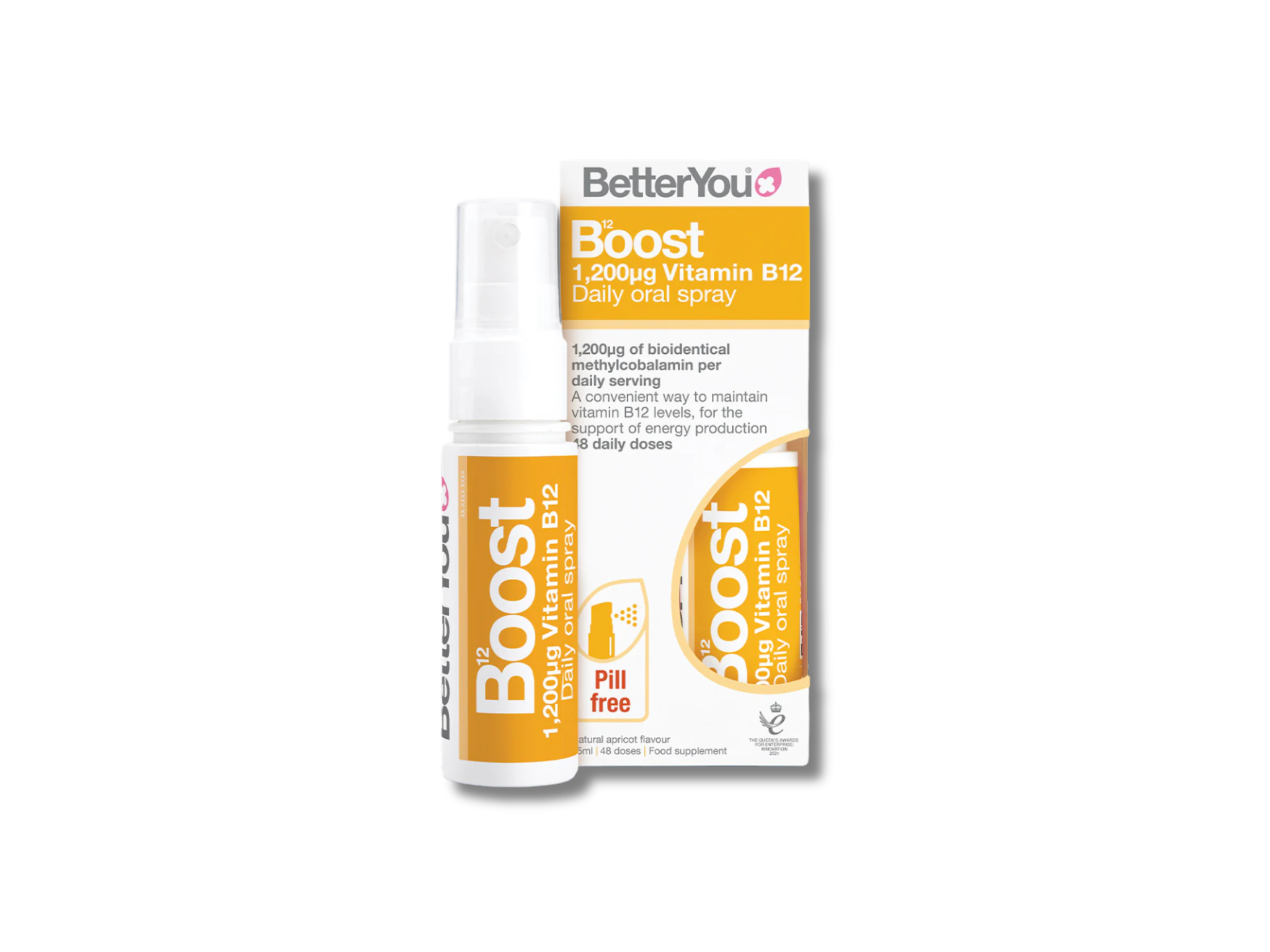
Volume: 25ml
How to take it: Four sprays daily
Strength: 300μg per spray
For those who struggle to swallow pills, a spray supplement could be a welcome alternative. This spray from Betteryou contains the most bioavailable form of B12 (methylcobalamin) which is a naturally active form found within human metabolism. The tiny apricot-flavour droplets are easily absorbed and easy to take via four sprays daily.
Sprays are often recommended for better absorption rates. Mullane explains that “if you have digestion problems or are coeliac then using a spray ensures that the nutrient is absorbed in the mouth and bypasses the digestive system”.
One bottle should last you 48 days based on four sprays per day and at 25ml it’s easy to travel with too.
Buy now £9.99, Betteryou.com
Vivo Life liquid B12 complex
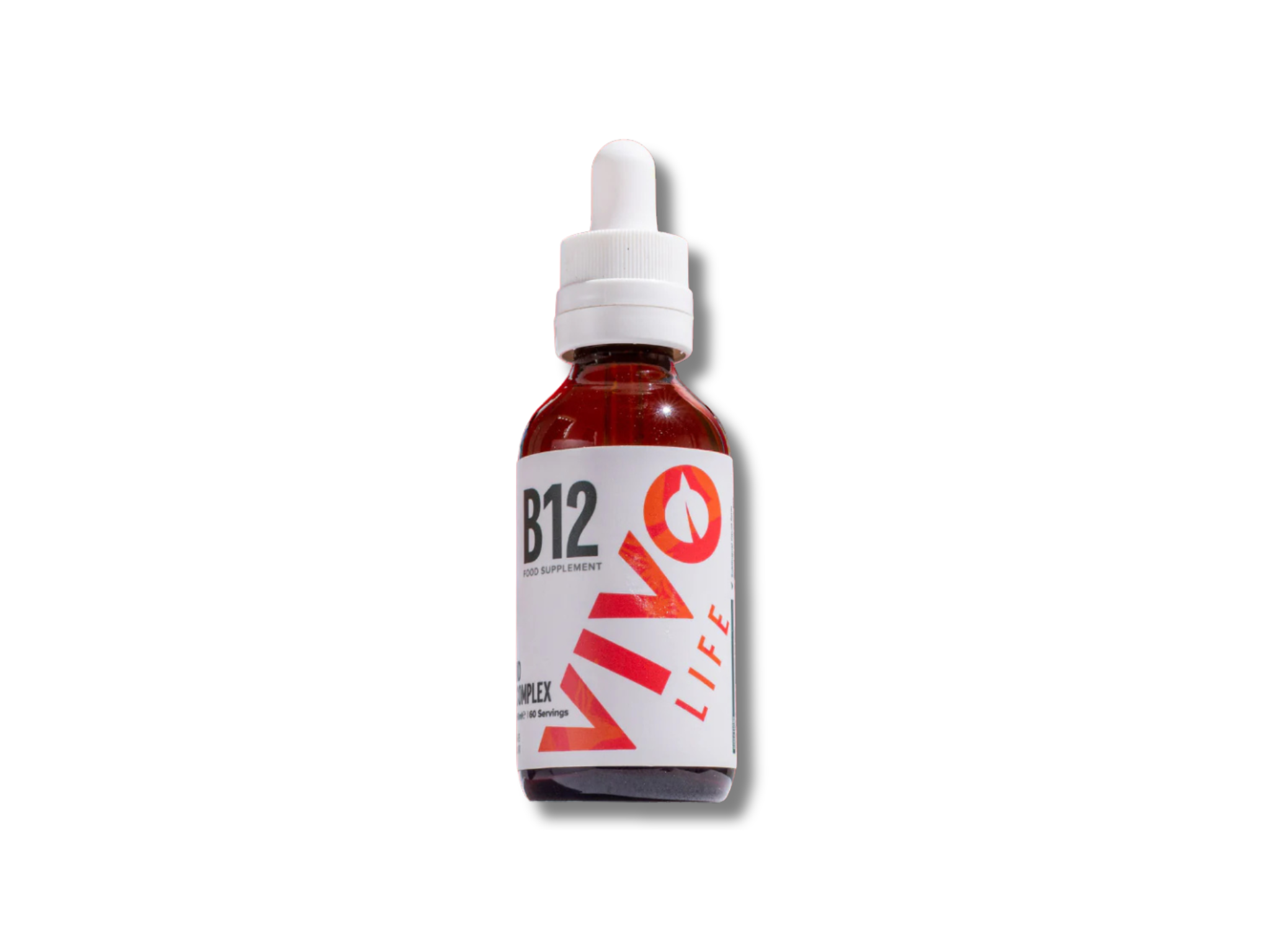
Volume: 60 servings
How to take it: Drop a full pipette under your tongue
Strength: 500μg
With a similar delivery system to the spray, this liquid B12 is delivered via a dropper that’s placed under the tongue. Offering a triple B12 complex, the liquid bypasses the stomach and liver for more effective absorption.
Mullane says that “this sublingual liquid is ideal for vegans and contains three forms of B12 in an orange-flavoured liquid.”
The complex contains methylcobalamin, hydroxocobalamin and adenosylcobalamin – three biologically active forms of B12. Simply drop a full pipette under your tongue and hold it there for approximately 30 seconds before swallowing, or dilute it in a glass of water, depending on your preference.
Buy now £15.99, Vivolife.co.uk
Metagenics vitamin B12 gummies
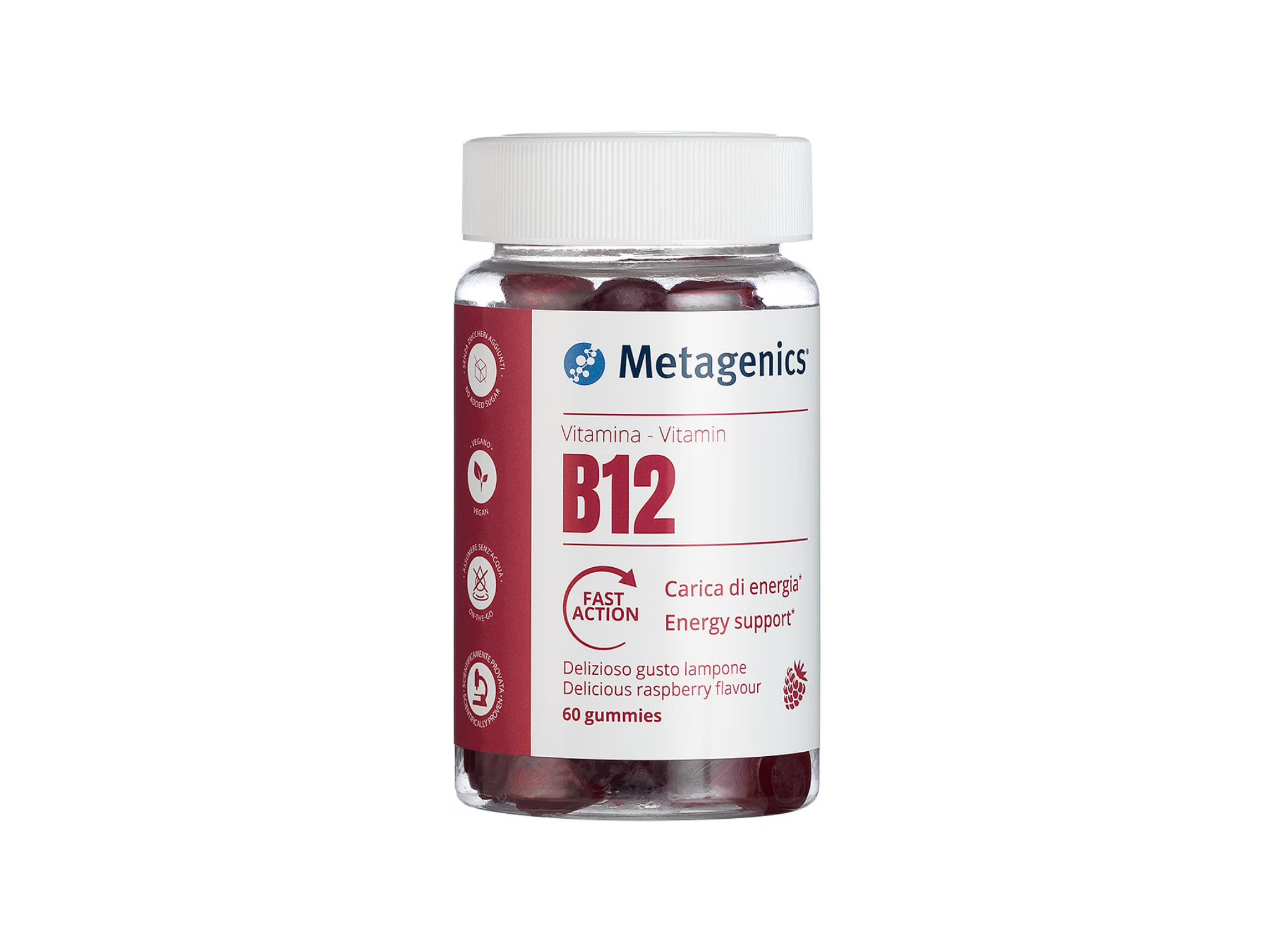
Volume: 60 gummies
How to take it: Chew one gummy per day
Strength: 500ug
According to Mullane, “gummies are ideal for people who don’t like swallowing capsules, and this one contains no artificial colours, sweeteners or added sugar, unlike lots of other gummies. It also contains the active form of B12, methylcobalamin.”
These raspberry-flavoured gummies are suitable for vegans and those who are pregnant or breastfeeding too. Each gummy also contains 2mg of vitamin B6 for added nervous system support and a dose of inulin – a prebiotic to support your microbiome and encourage better absorption.
The brand advises chewing one gummy per day so a bottle of 60 gummies should last you two months, making this option by Metagenics one of the more cost-effective solutions.
Buy now £23.99, Nutriadvanced.co.uk
Patchaid B12 plus
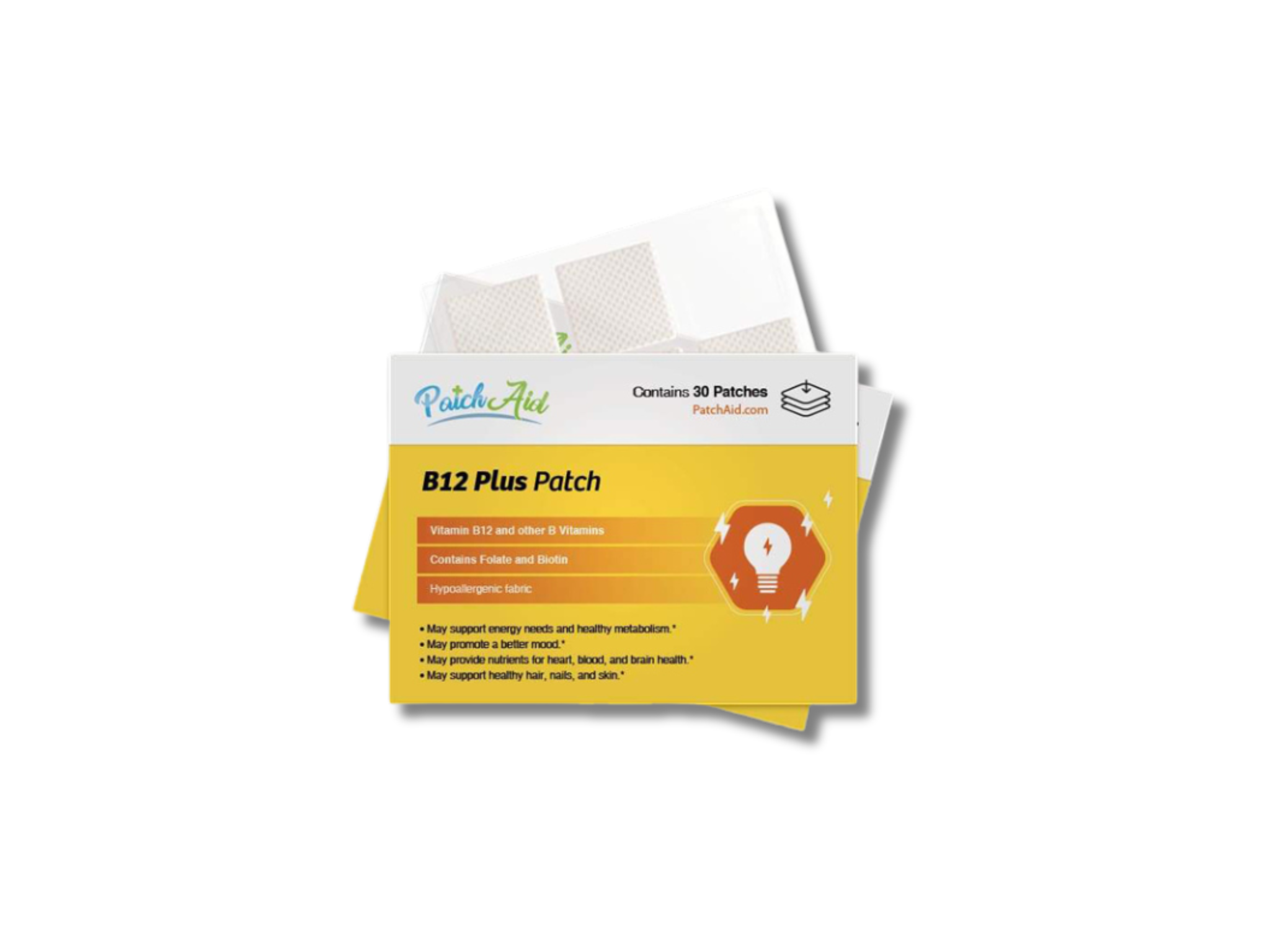
Volume: 30 patches
How to use it: Stick one patch to clean skin during the day
Strength: 1200ug
Patchaid’s B12 energy plus vitamin patches offer a unique way to top up your B12 levels by way of a patch worn on the skin. These patches contain a formula of B vitamins, along with biotin, folic acid, niacinamide and choline.
Mullane explains that patches like this are, “another great solution for people with digestive issues or anyone that doesn’t like swallowing capsules. One patch per day contains a large dose of B12 along with all the other B vitamins to support energy production.”
For best results, it’s recommended to wear one patch for eight hours. Wearing them for longer doesn’t offer any benefits, however, experts recommend only wearing them during the day as B12 is an energy booster and may interfere with sleep.
Buy now £19.5, Patchworksuk.com
Get A Drip vitamin B12 injections
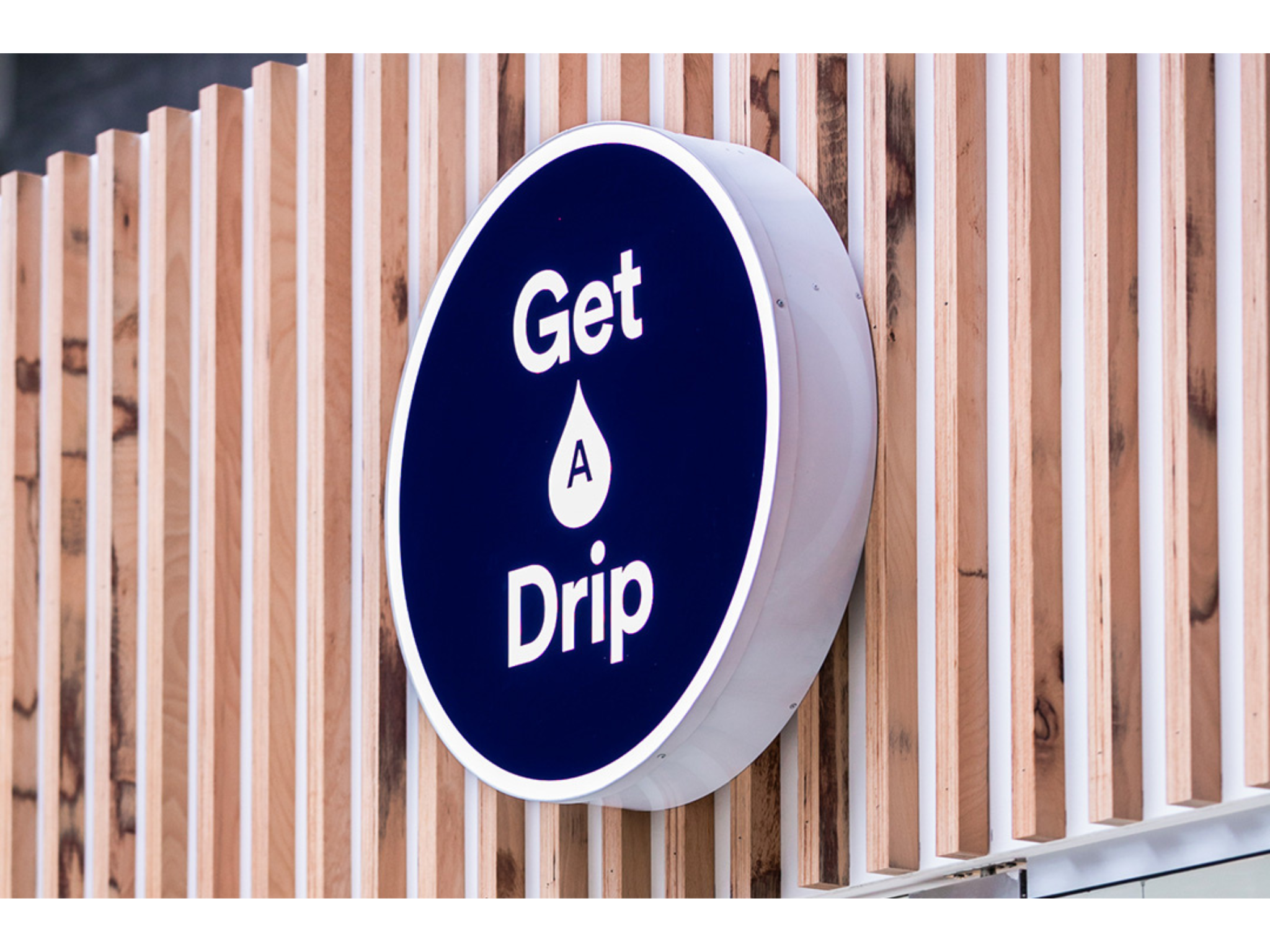
Volume: Dependent on need
How to take it: One injection no more than once a month
Strength: Dependent on need
If you’re not opposed to needles, a B12 booster injection might be a consideration. Get a drip offers three different types of booster – a hydroxycobalamin injection, a methylcobalamin injection or a triple B12 shot containing methylcobalamin, adenosylcobalamin and hydroxycobalamin.
“I like B12 injections as you know that all of the vitamin is getting into the body and is available for use, with nothing lost due to digestion or absorption problems,” explains Mullane. “It also means that you don’t have to remember to take your supplements every day. B12 injections are great for anyone with compromised absorption like with coeliac, IBD or general digestive issues. Branches are located all around the UK and home call-outs are available.”
Injections are administered in appropriate doses for your needs by qualified medical professionals at Get a drip locations or at your home.
Buy now £30, Getadrip.com
Your questions on the best vitamin B12 supplements answered
How is vitamin B12 made?
Vitamin B12 is made by microorganisms that are found in the soil and in water. Humans can’t produce B12 by themselves so rely on these natural sources for the levels they need to function optimally. The B12 in supplements is synthesised in laboratories using fermented bacterial cultures which are refined and added to capsules, liquids and patches available over the counter.
How much B12 should I take?
The NHS recommends an intake of approximately 1.5μg per day of B12 for adults via diet or supplementation. Recommended B12 intake is dependent on the level of your deficiency. Your age, diet, digestive health, genetics and many more factors can influence how well your body is able to absorb B12 and whether or not you’re getting enough from your diet. People following a vegan or plant-based diet are more likely to present with a B12 deficiency, but those over 60 are also at a higher risk of not consuming enough B12.
Can you have too much B12?
It is possible to have too much Vitamin B12 in your system and taking too much can cause side effects such as insomnia, headaches and gut issues. However, the body is generally very efficient at excreting excess B12 through urine without any issues.
What is the best way to take B12?
Sprays, tinctures and B12 injections bypass the gastrointestinal tract entirely, delivering nutrients directly into the bloodstream. This ensures greater bioavailability and generally those with gut issues might want to consider these forms of supplementation over oral capsules or tablets.
However, quality capsules and tablets are still a good form of B12 delivery for those without issues like IBD. A healthy gut will break down a capsule during its journey through stomach acid reducing the level of nutrients that are released into the bloodstream. This is why it’s important to opt for a quality supplement with a protective outer casing and a pure bioavailable content.
Meet the expert
Read more: I tried the bulletproof coffee trend and added MCT oil to my morning cup







